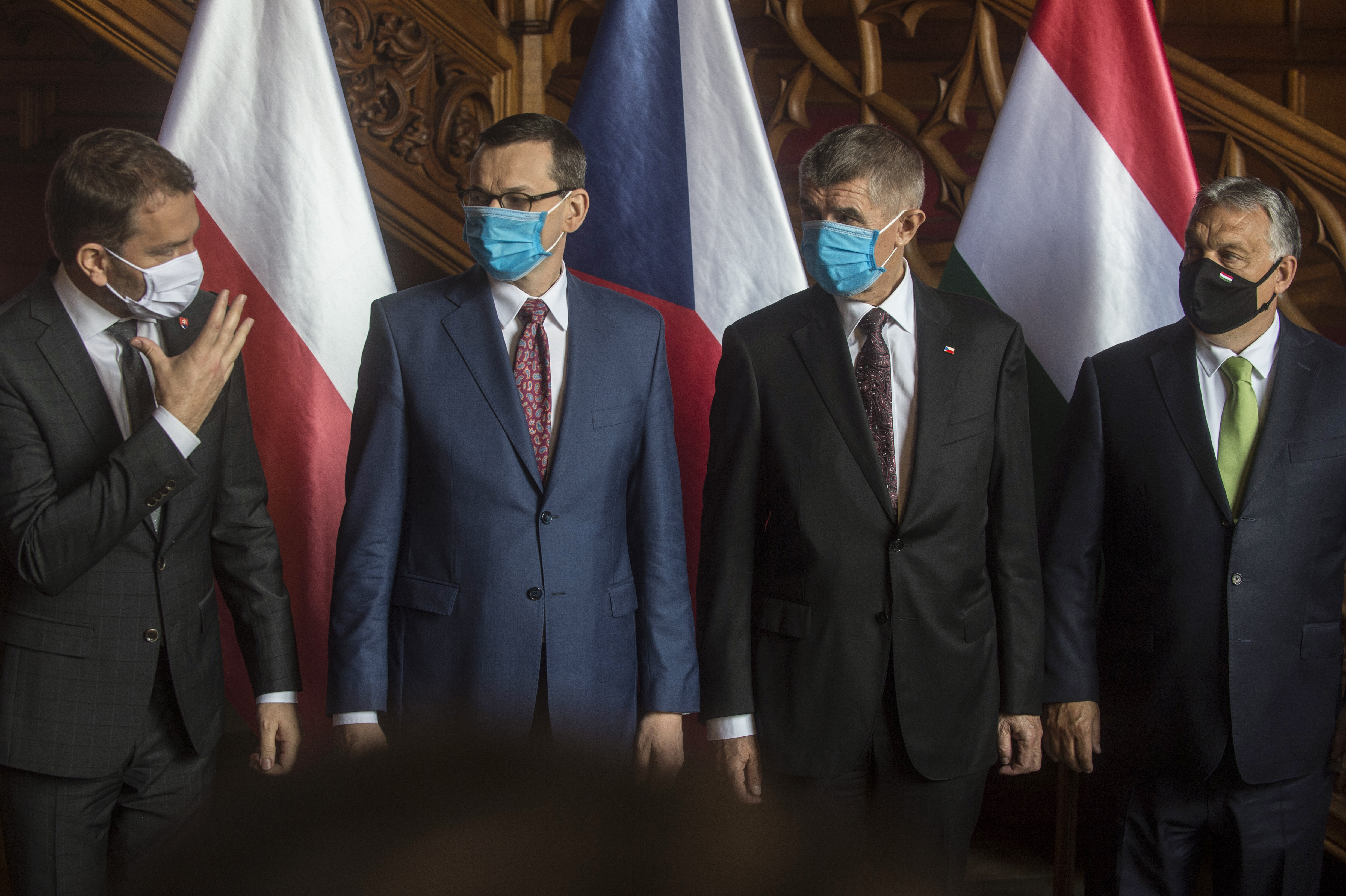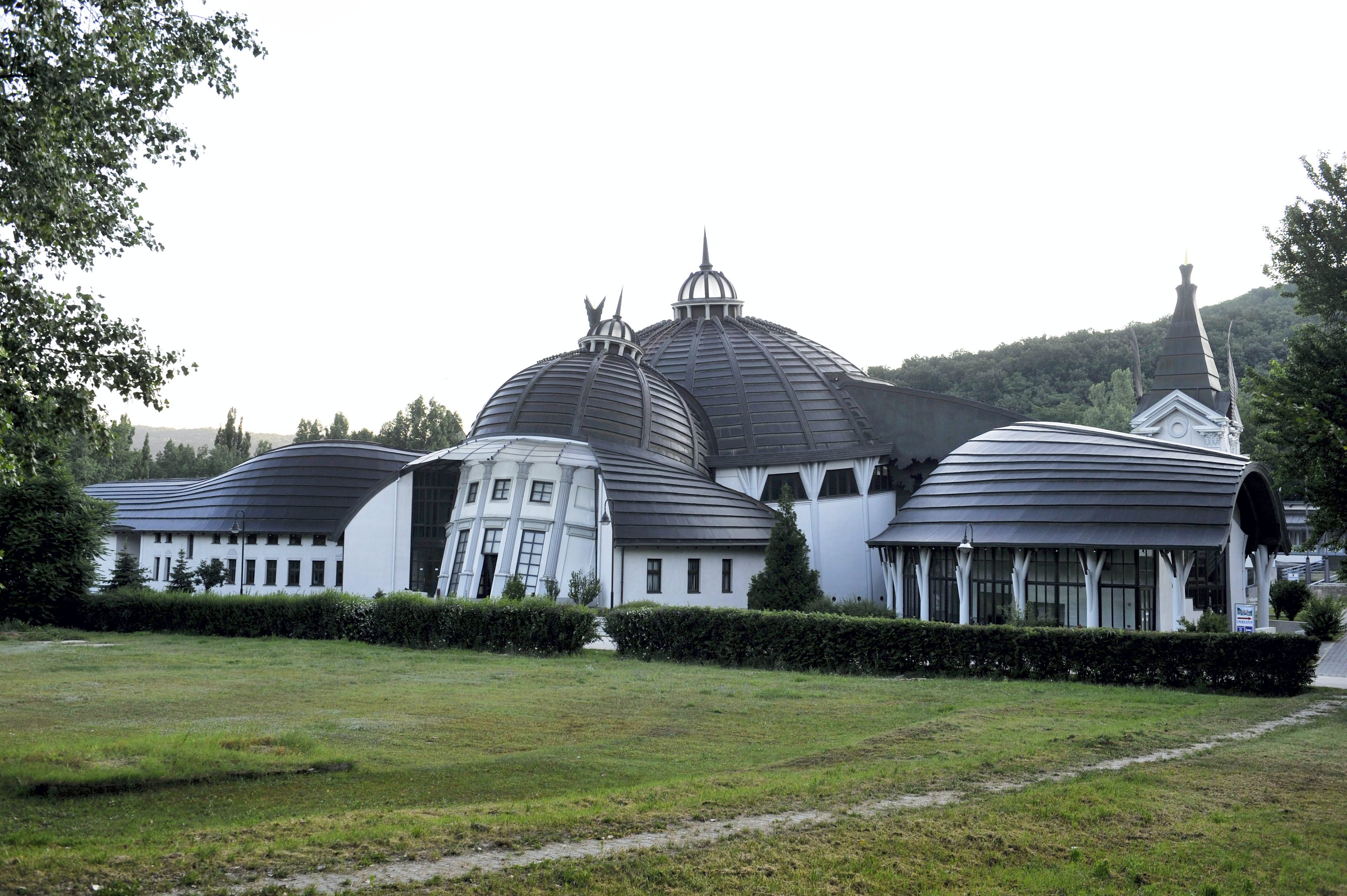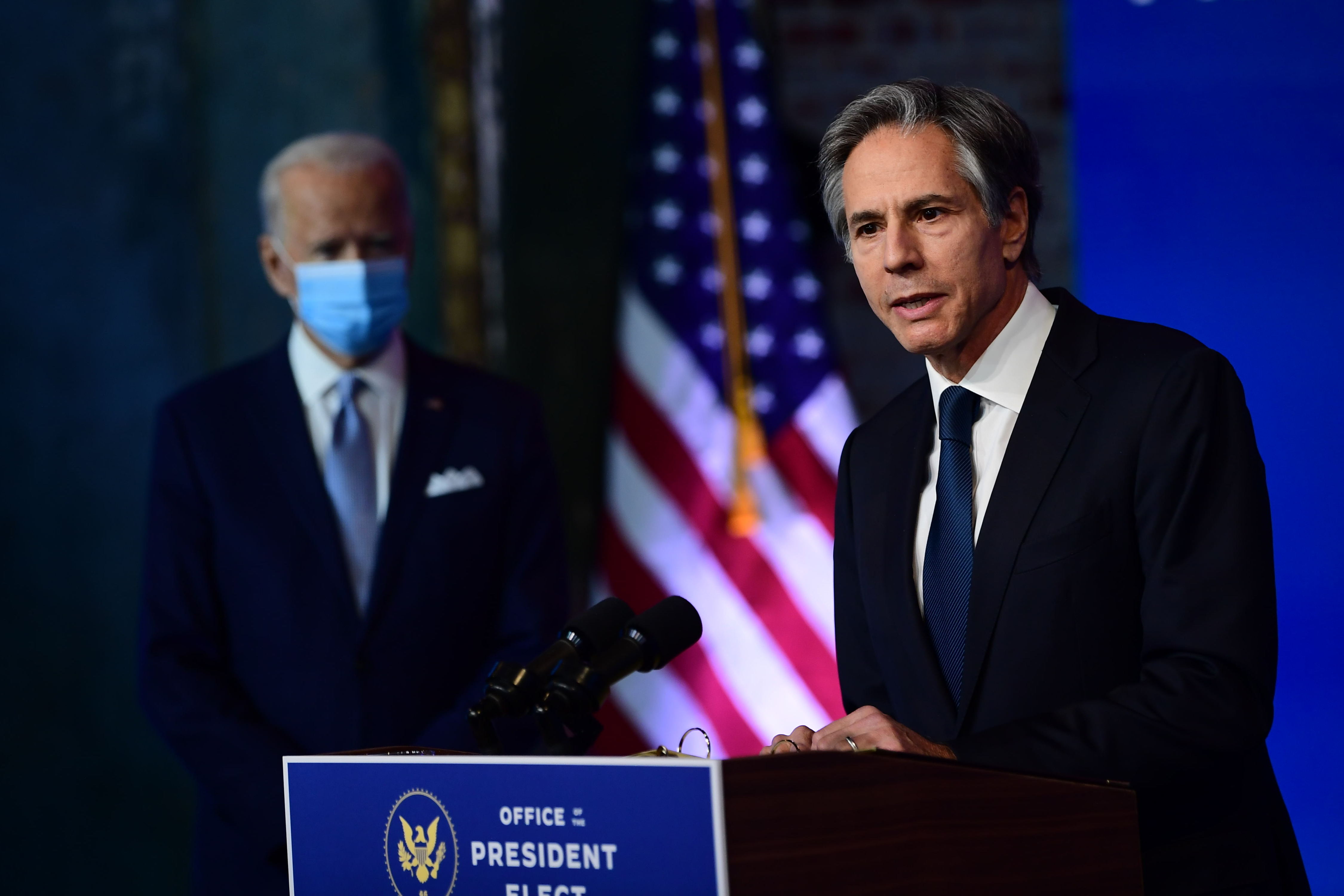Hungary will not expel Russian diplomats over Czech explosion, alone in the V4
- Stay updated on the latest news from Hungary by signing up for the free InsightHungary newsletter:
Hungary will not comply with calls by the Czech government to expel Russian diplomats in response to an explosion at a Czech munitions depot blamed on a Russian military intelligence unit, making it the only country in the Visegrád 4 not to do so.
Slovakia, Poland and Czechia, all V4 members, have expelled diplomats from their countries in response to reports that the 2014 explosion which killed two people in Vrbetice, a small village near the Slovak border, was carried out by agents of Russia's GRU. Czechia last week urged its European Union and NATO allies to, in an act of solidarity, expel any "Russian intelligence officers" from their countries.
Hungary's foreign minister, Péter Szijjártó, told reporters on Wednesday that Hungary had expressed its solidarity with Czechia by issuing a joint declaration condemning the Russian operation, and by assisting the country in temporarily overseeing its consulate in Yekaterinburg after Russia expelled 20 Czech diplomats.
"So there can be no question of any kind about our solidarity," Szijjártó said, adding that "we do not plan any other steps at this time."
The Hungarian government's response to the diplomatic row has reinvigorated questions over the country's posture toward Moscow, with which Prime Minister Viktor Orbán has established close ties.
Reports on Tuesday indicated that Orbán objected to an original version of the V4's joint declaration condemning Russia's role in the explosion, and that it was toned down at Orbán's insistence. The first version, drafted by Poland, reportedly called for the cancellation of the Nord Stream 2 pipeline project and voiced strong support for Ukraine and Belarus.
Last year, Hungary broke with EU allies and remained silent on elections in Belarus, which were widely seen as fraudulent, and the subsequent violent police crackdown on protesters. Orbán has opposed sanctions on both Belarus and Russia.
An investigation by Bellingcat has found that two GRU officers posing as diplomats may have travelled to Budapest in the days ahead of the explosion and joined four other officers in Czechia to carry out the operation.
Last week, Baltic states Lithuania, Latvia and Estonia expelled a total of four Russian diplomats in solidarity with Czechia, and this week, Hungary's neighbor Romania expelled the Russian embassy's deputy military attaché.
Universities put under control of foundations enriched with state assets
Hungary's parliament voted on Tuesday to place 11 universities under the control of what the government calls "public trust foundations," and granted some of them endowments worth billions of euros in state assets.
The move was seen by critics as an attempt by Prime Minister Viktor Orbán and his Fidesz party to consolidate control over Hungary's higher education and cultural institutions, and to make much of the state's valuable assets available to Fidesz loyalists even if the party loses competitive elections next year.
"This is the organized theft of the assets of the Hungarian people," said opposition MP Gergely Arató (DK) during the parliamentary debate. Following the vote, independent MP Bernadett Szél called the move "Fidesz theft."
The foundations will take ownership of the universities and their properties and assets for free, and will have broad authority to make management and administrative decisions including appointing the universities' rectors. The endowments include castles, palaces and other valuable real estate, farmlands, and shares in partially state owned companies like pharmaceutical firm Gedeon Richter and Hungarian energy company MOL.
The foundations are led by government-appointed boards of trustees, largely composed of current or former ministers, MPs or state secretaries of the governing party. After their initial appointment, the boards are granted the right to appoint any new members, eliminating future oversight of their composition by Hungary's parliament.
Only hours after Tuesday's vote, pro-government website Mandiner released a list of officials slated to receive positions on the boards, including István Stumpf, the government commissioner in charge of the higher education reforms, who will become chairman of the board of Tokaj-Hegyalja University.
Additionally, finance minister Mihály Varga will chair the board of Óbuda University, and former justice minister and current Fidesz MEP László Trocsányi will be on the board of Szeged University of Science, according to the list.
Only four current rectors of the 11 universities received positions on the new boards of trustees, and only five universities in Hungary remain under state ownership.
On Monday, a dozen European lawmakers sent a letter, obtained by Politico, to European Commission president Ursula von der Leyen, urging her to block EU funding to Hungary that could end up being siphoned off to the foundations.
"The Hungarian government uses these opaque funding structures to better access EU funds, whilst at the same time further destroying academic freedom," the lawmakers wrote.
In an opinion column earlier this month, 444 writer Péter Magyari analyzed the government's efforts to outsource the functions and wealth of the state to quasi-private foundations:
"Fidesz is demolishing the state, fearing that they may lose control. In this way, they can retain positions of power, but in the end they are weakening the Hungarian state and undermining the possibility of democratic control.”
Scientists and politicians decry government's vaccine efficacy chart
Hungary's government on Sunday released a chart purporting to show the results of a study on the effectiveness of Covid-19 vaccines, but scientists and politicians blasted it for being inaccurate and misleading.
The chart, which appeared designed to increase trust in Russian and Chinese vaccines, shows the number of infections and deaths recorded among people who have received a second dose of a vaccine.
According to the presented data, Russia's Sputnik V is the most effective at preventing Covid-19 illness and death after two doses. The chart also claims that more deaths occurred in those that received a Pfizer-BioNTech vaccine than with any other jab.
The chart was sent by email to all those who have registered to be vaccinated and agreed to digital correspondence, and the government promoted it on Facebook with a paid ad.
But scientists and politicians decried the data as misleading and based on flawed scientific methods. In a letter to the Emergency Task Force, the Chamber of Hungarian Doctors said the data "are not suitable for determining differences in efficacy between individual vaccines," and criticized the "unknown processing methodology." The Chamber also argued the data had not taken into account the age or underlying conditions of those thought to have gotten sick or died after vaccination, or made adjustments for how much time had elapsed after receiving a second dose.
Katalin Karikó, the Hungarian-born biochemist whose research was instrumental in developing mRNS technology which led to the Pfizer-BioNTech vaccine, said the data was "completely misleading," and criticized the chart for failing to indicate that the Sputnik and Sinopharm vaccines were put into use later than western jabs, and were not used on those suffering from chronic health conditions, distorting the data.
Independent MP Bernadett Szél on Monday said that she would file a complaint against the Hungarian government for "fearmongering," a criminal offense introduced by the state of emergency ostensibly to combat misinformation about the pandemic.
"The government has adjusted data on the efficacy of vaccines to serve propaganda purposes, which could inhibit...the success of [pandemic] defense," Szél wrote.
Blinken calls on Hungary to ensure press freedom
U.S. secretary of state Antony Blinken said in a press discussion that the United States is concerned about the state of human rights, democratic institutions and press freedom in Hungary, and is committed to achieving progress in those areas.
"We have real concern that is shared by international press freedom advocates and many Hungarians over the decline of media pluralism in Hungary," Blinken said according to Telex.hu, which was present for the online discussion. "Diversity of independent voices and independent opinions is the fabric of democracy. We would certainly urge the Hungarian government to promote an open media environment.”
Blinken called it "ironic" that Hungary had been liberated from Soviet domination only for its citizens to be newly subjected to repression of freedom of expression and press pluralism.
The secretary said that Central Europe is a center of geopolitical competition, and that Moscow and Beijing are working against integration and seeking to undermine the democratic will of many Central and Southern European countries.
"The United States and our administration are committed to working to find ways to strengthen our relations with Hungary, a NATO ally, and also advancing our commitment to supporting democratic institutions and the rule of law. These things should not be incompatible," he said.
The U.S. State Department invited eight journalists to the online discussion from countries "where press freedom is under attack." Other participating journalists were from Zimbabwe, Venezuela, Turkey, China, Egypt, Pakistan and Kazakhstan.
A report released Wednesday by Freedom House, a U.S. government-funded non-profit organization, said that antidemocratic practices in Hungary had caused a further decline in its democracy. For the second year in a row, the "Nations in Transit" report lists Hungary as a "Transitional or Hybrid Regime."





